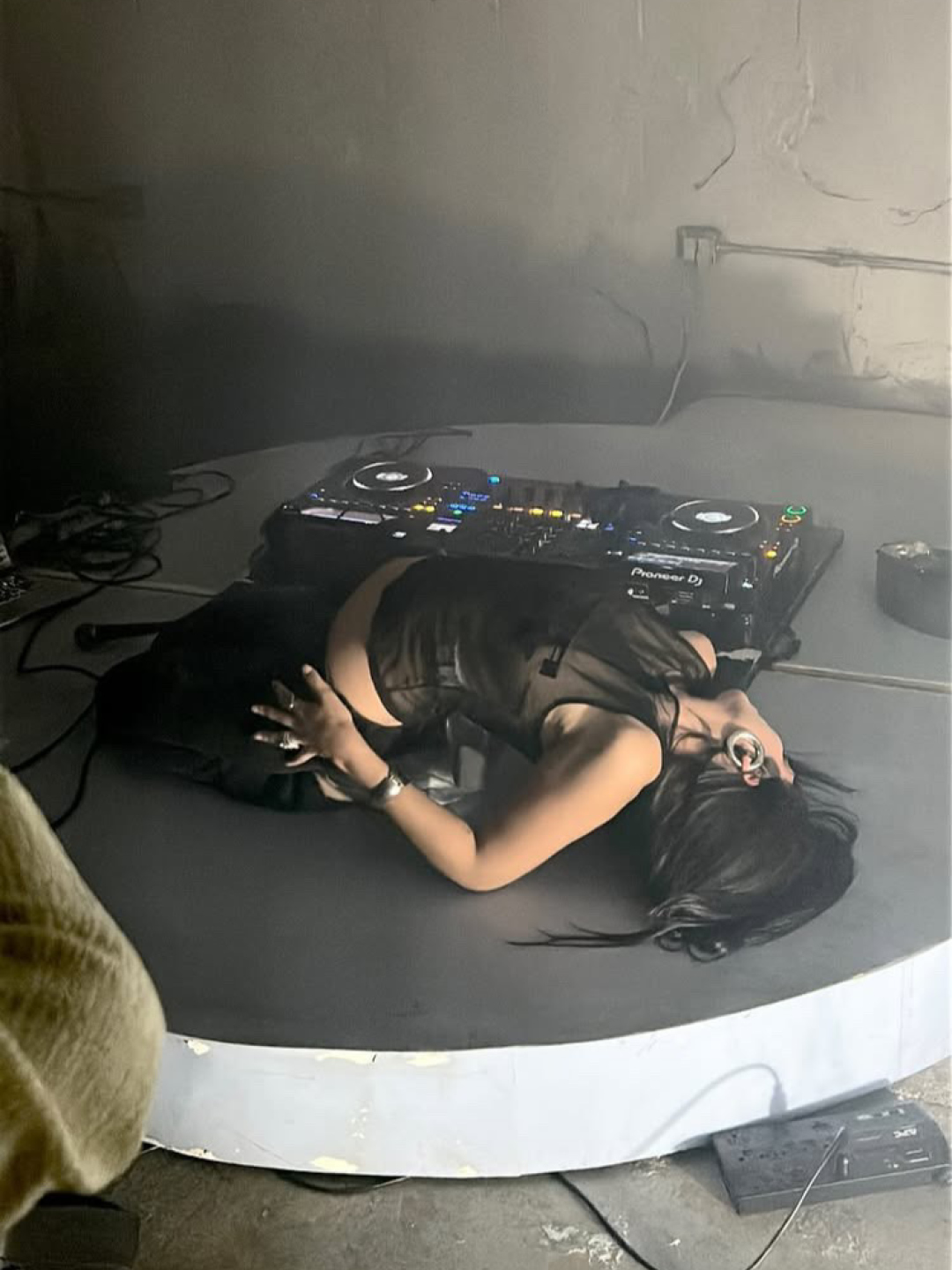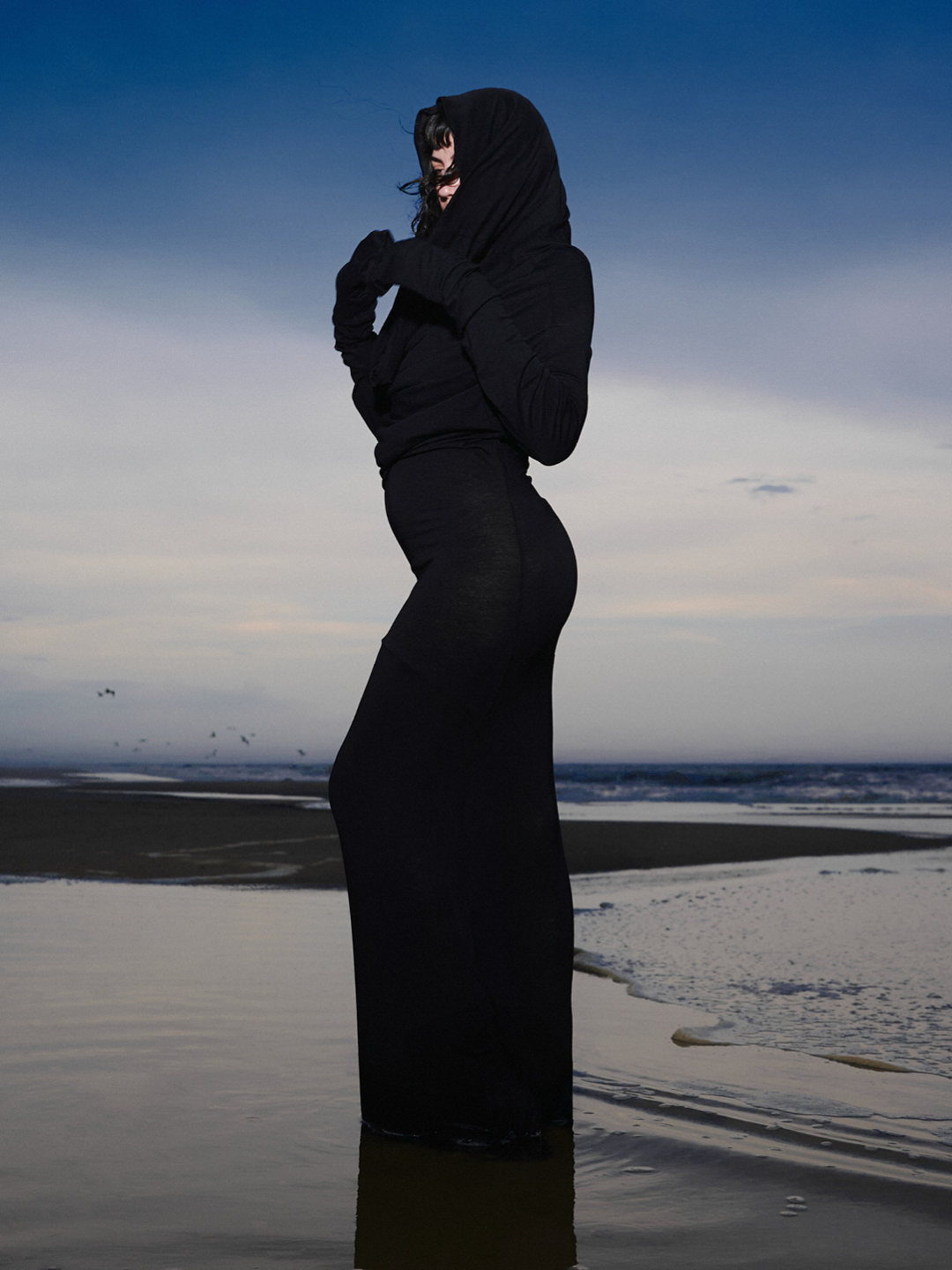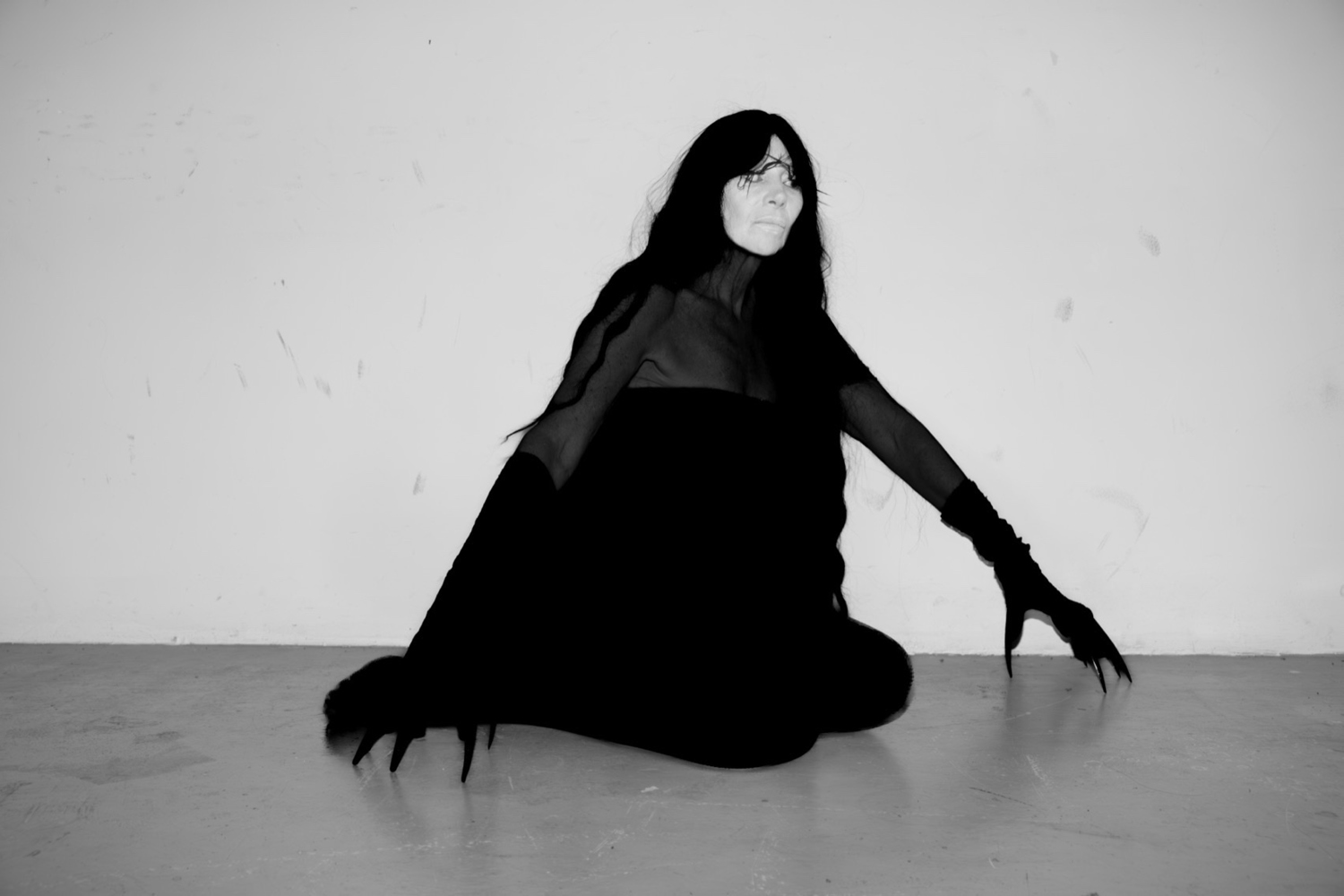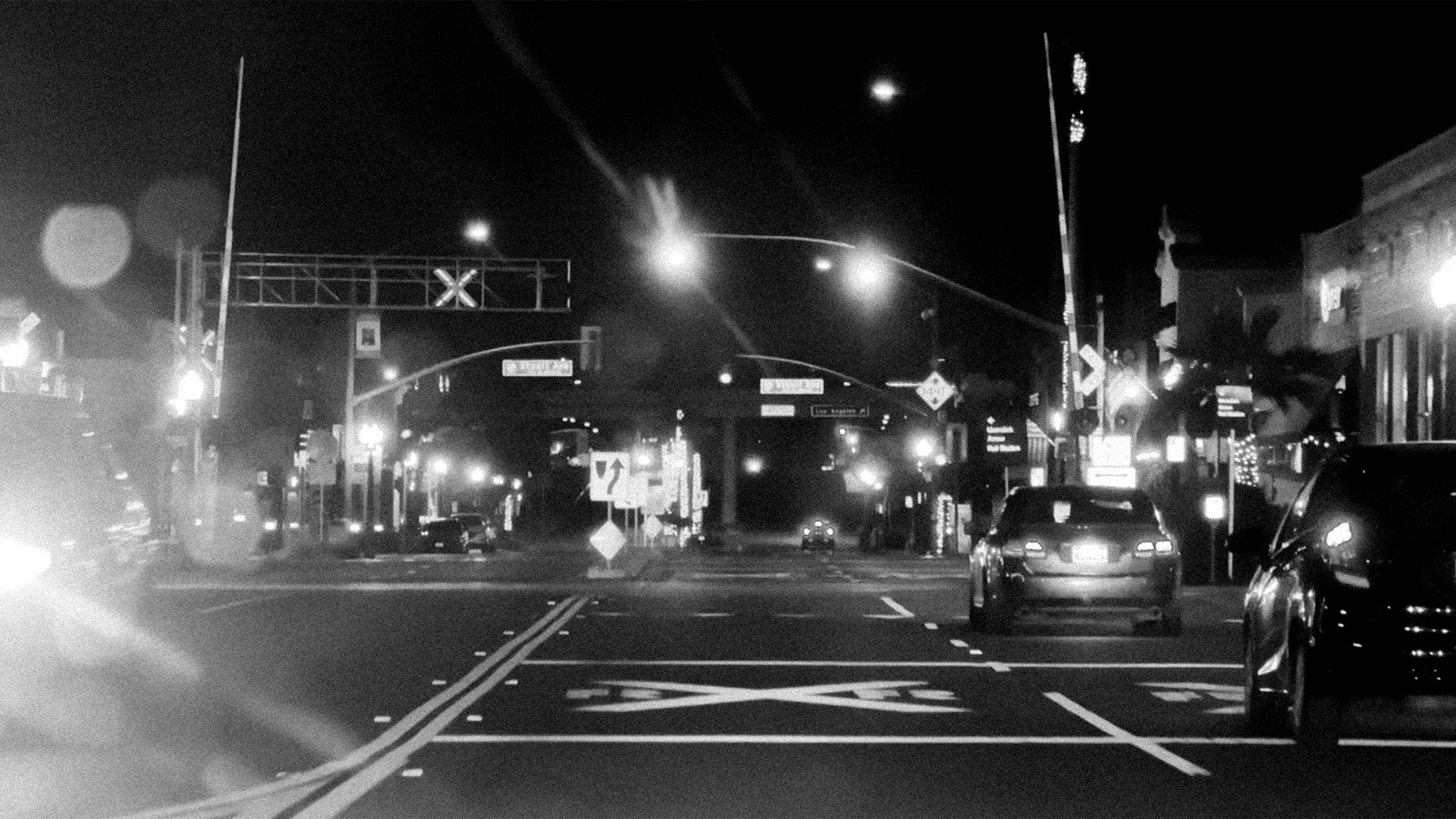
Soundscapes vol.141 | Franz Jäger
Music | Soundscapes
A selection from Swedish DJ and producer Franz Jäger. A technoid approach of minimalistic and organic techno full of momentum and carefully crafted soundscapes.
Love and devotion drive Guillotine’s newest project, a kind of religious psychosis, a fervor so consuming it could feel life-altering. Can you recall moments of spiritual surrender or intense emotion that mirror falling in love, losing yourself in someone, or giving yourself wholly to a feeling?
Definitely. In the past, I’ve been in relationships where I felt myself slipping in and out of my own mind a bit, ignoring red flags, rationalizing behavior, convincing myself I could “fix” whatever was broken. I’m naturally a fixer, so my initial thoughts are always to ask, “What went wrong? How can I make this better?” That kind of thinking can become all-consuming. It narrows your world until the relationship is the only thing you can see, almost like a spiritual tunnel vision. Those experiences, though, taught me how powerful devotion can be, how it can become a quiet psychosis when you lose yourself in someone else. It’s the same intensity I channeled into this project: that mix of surrender, yearning, and the eerie holiness that can live inside emotional extremes.
Do you think that those who love wholeheartedly approach it with the same intensity and belief as a follower of a cult or spiritual leader? In this light, do you see someone in love with you as a devoted acolyte, utterly captivated, hopelessly surrendered, and yes, does that change how you inhabit your own role in the dynamic?
Oh, absolutely. I personally don’t see a huge difference between someone who devotes themselves to a god and someone who’s madly in love. In both cases, you’re looking to another being for guidance, comfort, or answers. For a long time, I interpreted anyone showing me love or interest as being devoted to me. In return, it created this illusion that I was on a pedestal, and honestly, I played into that at times. I’ve also put other people on pedestals, expecting them to be more than human. What I’ve learned is that neither direction is healthy. It places enormous pressure and unrealistic expectations on both people. So while the intensity of love can mirror a kind of spiritual devotion, I’m much more conscious now of not letting that dynamic define the relationship or my role within it.
Is this album a direct emotional autobiography, or a constructed persona exploring heartbreak, obsession, love, despair, relief, and acceptance? Where do you go internally to access these emotions, what memories, surroundings, or obsessions do you revisit to fully inhabit the album’s world?
It’s very much a direct emotional autobiography. I’m not a religious person at all, I grew up as a Jehovah’s Witness until I was about six or seven, but I’ve never carried any formal faith into my adulthood. Growing up in that environment, though, started paving an ideation of devotion within me that I didn’t recognize until later on. So instead, love often becomes the stand-in for that kind of spiritual intensity in my life, the obsession, the sacrifice, the devotion. All of that found its way into this project. When I was working on the EP, Paul Bennett, my producer and also a close friend, would create sounds that instantly pulled specific emotions out of me. Sometimes it was sadness, sometimes anger. For example, the track “Offerings” comes from that feeling of having given so much of myself that there’s nothing left to offer. The visuals reflect that, too: just my head (which is seen throughout religious imagery) on a medical table with tubes pumping blood in and out. To me, it symbolizes “What more do I have to give?” and those tubes symbolize a relationship that’s clearly falling apart but still hanging on by a few fragile threads. It’s all very sacrificial. Internally, I access these emotions by revisiting those moments where I felt emptied out, consumed, or overwhelmed by love. It’s less about constructing a persona and more about amplifying the ugliest and rawest parts of myself until they become their own world.
Your persona radiates sensuality and confidence, exploring the many faces of falling in love and surrendering to a feeling. Do sex, sensuality, and physical devotion play a role in this album? Across the arc of your EP, from the aching melancholy of the opening tracks to the exhalation and clarity of “Draped Upon the Breath of Judgement”, where do the most primal expressions of love, heartbreak, and ritualized devotion emerge?
I think those themes really start to reveal themselves in “The Warfare Between Spirituality & Humanity.” All the sadness that builds earlier in the EP begins to calcify into rage, and that emotional shift leads directly into “Acts of Violence,” which is very much about sex. But that track carries two layers for me. On one level, it captures that moment after heartbreak when you’re trying to burn through the lingering grief by giving in to something primal, using the body as a way to reclaim yourself. And on the other, it has a much more literal meaning: it’s about being at Berghain with my wife, haha.
In that sense, it becomes a celebration of what it feels like to find real love again after all the madness and emotional wreckage I’d been through. So yes, sex, sensuality, and physical devotion absolutely thread through the album. But they also evolve into something deeper, a kind of symbolic death. In the center of the EP, desire, anger, and release flare and burn themselves out, creating space for transformation. By the time the music reaches the clarity of “Draped Upon the Breath of Judgement”, it feels like less of an ending and more like a resurrection.
If you were to fully embrace the role of guide, leader, or high priestess of experience, what landscape (emotional, spiritual, psychic) would you lead your listeners into? Where are you guiding them through your music, and what do you hope they encounter in that emotional space?
I’d definitely step into the role of a high priestess and lead my listeners through hell and back. I would have them turn inward, face what’s really going on, and navigate through that internal agony in order to become a better version of themselves. I think oftentimes, people avoid doing the work and digging deep, which in turn leads them to falling into the same toxic patterns.
Do your upbringing, culture, or Argentinian roots shape the way you create, perform, and inhabit music? Which childhood characters, traditions, or memories surface in your work, consciously or unconsciously, especially on this album?
Well, I’m half Colombian too, so that naturally adds its own layer of intensity, lol. I grew up with a strong, loving, deeply passionate mom, and watching everything she navigated in her marriage with my dad, eventually leading to a divorce, had a huge impact on me. Seeing her role within that dynamic shaped the way I learned to love myself and also love others. A lot of those patterns made their way into my relationships and into my art as well. However, therapy has been a huge part of unlearning some of the patterns that were harmful. So yes, my upbringing and culture definitely influence how I create and how I show up. Even when I’m not consciously pulling from childhood memories, the emotional imprint of those early years always finds its way into my work.
After years DJing in New York, Montreal, and Berlin, the lockdown period pushed you inward, experimenting with songwriting and production through SHLVES, where your sonic identity first emerged. Is this album a raw, primal expression of yourself, with unrestrained vocals and emotional waves, or a more polished, measured version, more intentional and elevated? How do you perceive yourself while creating, and once the work exists beyond you?
It’s really both. With SHLVES, I was creating with two other people, one of them being Paul, and the project was a fusion of all three of our ideas. At the time, I wasn’t in a great place mentally. I was in a very explosive relationship, dealing with personal trauma, and navigating lockdown on top of it all. But that project ended up becoming a bridge between DJing and stepping into my identity as an artist. It forced me to look inward and realize I had more to offer than I thought. When I’m creating music, I pull from the most vulnerable corners of myself that I’m willing to share, usually in an elusive manner. I like letting the sound carry the emotion more than the lyrics. I believe sound can convey and evoke emotions better than words can. Now that this project exists beyond me, I see it as a release. I love hearing how other people interpret it, what it evokes for them. It stopped being just mine and it became something living on its own, which is pretty amazing.




Credits:
Talent: Guillotine / @guillotine0001
Interview: Ethel Romero / @_bby_ella_

 C280: Machine Of Loving Grace / Jesse Draxler
C280: Machine Of Loving Grace / Jesse Draxler